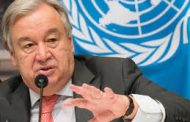Since the outset of the transitional period the Sudanese public opinion has been yearning for a prompt step of signing a lasting peace with the armed opposition allied under the ‘Revolutionary Front’. The logic is simple: the popular revolution (of Dec. 2018 – April 2019) has ushered in a new phase of transition towards democracy, stability and development as raised under the major slogan of the Revolution: “freedom, peace and justice”.
However, some factions of the opposition movements – instead of joining forces with the transitional government (TG) – started to put more pressures on it. It pulled the TG into prolonged talks. It is not a problem that talks take a great deal of time if it is to lead to fruitful results. But the problem lies in the time factor and the challenges the TG is encountering. The opposition has every right to get what they have been struggling for over years. Actually, it is not the right time to achieve the targets nor the TG is in a position to respond immediately to their demands. The TG has specific mandate – namely to: (1) set the stage and the healthy politicalclimate for organizing elections for a democratically-elected government; (2) work out a rescue economic program to tackle the economic crisis that the Sudanese people are suffering from (due to mistakes and corruption of the previous regime of Omer Al-Beshir; (3) conducting a transitional justice to try those committed crimes or indicted of corruption or other crimes and restore the public money as well as properties stolen by the defunct regime; and (4) reforming the foreign policy.
Faced with such challenges – with a bankrupt government – one expected that the opposition would adopt a ‘national’ stance and declare the suspension of any demands, particularly with regard to power sharing or asking for high-ranking posts in the transitional period and agree to nominating an efficient/independent technocratic figures for the state machinery – whereas at the federal or state and local levels.
It is illogical to link the formation of the bureaucratic organs with the peace process which one cannot predict “when” it would come to an end!
So, I call upon the opposition to suspend their demands and their interests for the sake of the national interests. The TG does not enjoy the adequate legitimacy to decide on major issues such as wealth and power-sharing, Sharia’ laws, the constitution and the like. Let us stick to achieving national interests for the sake of the people to attain the targets of their revolution. The delay of forming the state governments will be at the expense of the Sudanese people who suffer a lot due to the existing administrative vacuum resulting thereform.
https://khartoum-today.net/
 Sudan army chief Al Burhan freezes bank accounts of paramilitary RSF
Sudan army chief Al Burhan freezes bank accounts of paramilitary RSF Sudan’s SAF & RSF sign agreement intended to lay groundwork for humanitarian assistance
Sudan’s SAF & RSF sign agreement intended to lay groundwork for humanitarian assistance SAF, RSF agree on extension truce for the sixth time
SAF, RSF agree on extension truce for the sixth time Army, RSF agree to extend truce for 72 hours
Army, RSF agree to extend truce for 72 hours Sudanese people fled to Egypt amid acut humanitarian crisis
Sudanese people fled to Egypt amid acut humanitarian crisis THE ELEPHANT IN THE ROOM
THE ELEPHANT IN THE ROOM Death toll from Sudan fighting tops 180 as clashes in Khartoum enter fourth day
Death toll from Sudan fighting tops 180 as clashes in Khartoum enter fourth day By the UN Secretary-General Op-ed on G20 – 8 billion
By the UN Secretary-General Op-ed on G20 – 8 billion A strong military key to maintaining world peace
A strong military key to maintaining world peace Beautiful China shows new chapter of ecological conservation
Beautiful China shows new chapter of ecological conservation

AT CROSSROADS!
About the author
Related Articles
2020 All rights reserved khartoum-today.net 0124293222





